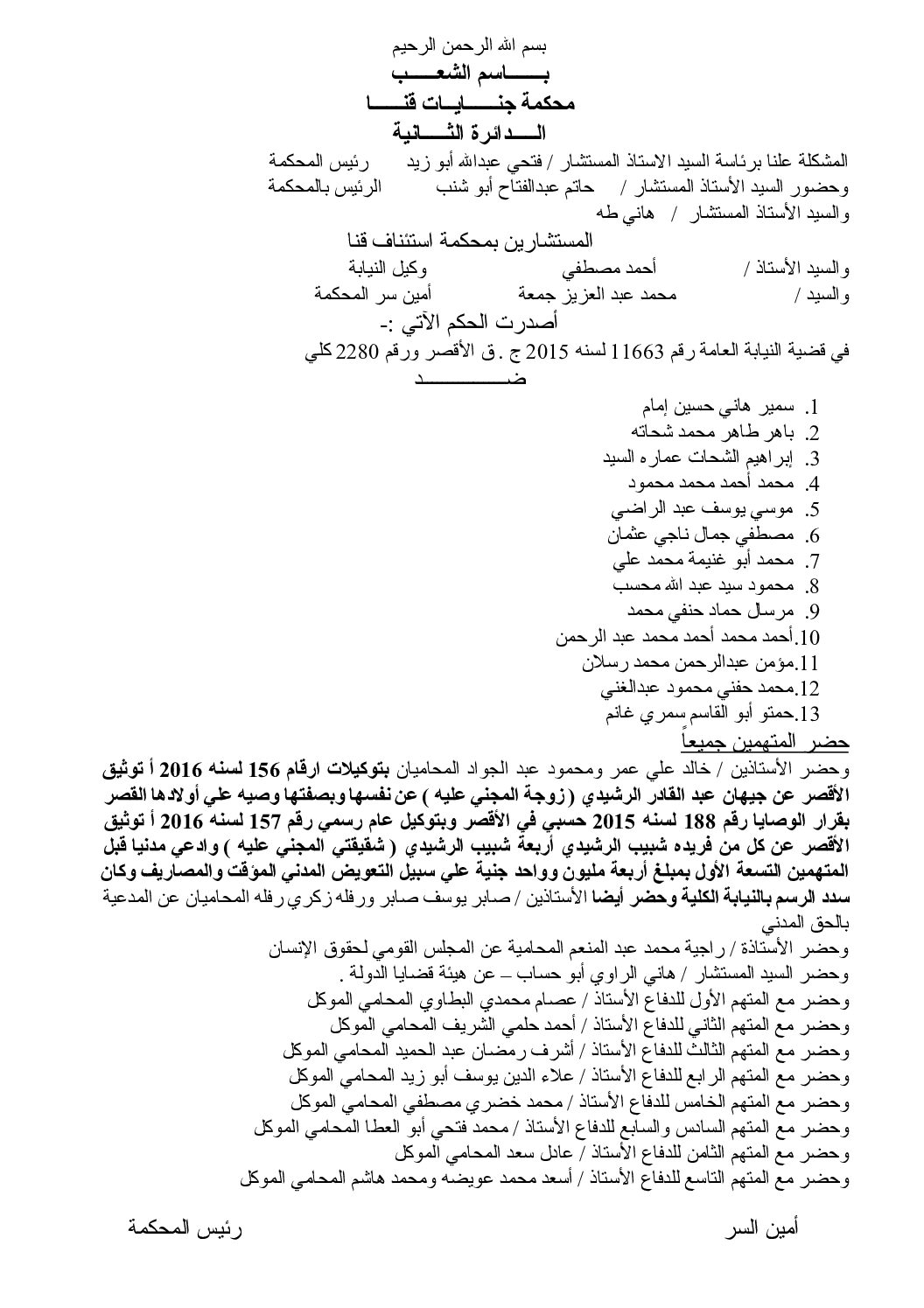ECESR Files Lawsuit on Behalf of White Taxi Owners and Drivers against Injustices

On behalf of white taxi owners and drivers, the ECESR filed the challenge 27071/68 before The Administrative Court against the President of the Republic, the Prime Minister, the Finance Minister, the Minister of Industry and Trade, the Minister of Justice, the Interior Minister, the Minister of Local Development, the Environment Minister, the legal representative of the Bank of Egypt, the legal representative of the Bank of Alexandria, the legal representative of the National Bank of Egypt, the legal representative of the Nasser Social Bank, and the legal representative of Misr Insurance Company. In this challenge, the ECESR claimed for halting the implementation of the negative decision that abstained from the formation of a technical financial and legal committee to re-evaluate the new white taxi price as a substitute for the old taxi. The assessment should state the real price of the new taxi sold for any consumer in the Egyptian market, with clarification of the material value equivalent to the advantages and subsidy provided by the state for the participants in the project, along with re-fixing the price of the new taxi on the basis of this assessment.
The ECESR brief stressed that the white taxi case in Cairo is one of the living examples that explains how public money is controlled by the clique close to decision-making circles. The drivers’ problems have not stopped since they handed over their old “black taxi” to the administrative bodies for scrapping in consideration of five thousand pounds and receiving a new “white taxi”. They have signed loan contracts and contracts of adhesion. Although taxi drivers have been promised gaining advantages, all advantages have ended in reality by the assistance of the administrative bodies into the pockets of auto and publicity companies and banks. To understand this kind of manipulation, you can look at figures: although the car is locally manufactured and its market price does not exceed 65 thousand pounds, the car’s price to the drivers is equivalent to 131 thousand pounds.
The brief also said that the manifestations of injustice in this project were visible and evident:
The law made it mandatory for drivers to exchange old vehicles, while all options before them were fake ones in order to oblige them to engage in the project.
Scrapping and shredding the old vehicles were the main objectives of the project, especially from the environmental dimension. There is no dispute about the importance of this matter, but the whole process was unfair. The driver has just received five thousand pounds, without observing the real price, which is the market price, of the scrapped old taxi.
The contract terms required the driver to sign an acknowledgment that if he failed to pay the installments specified by loan contract, the Bank has the right, after getting the overdues from the supplying company, to transfer the vehicle ownership to this company. Under the contract terms, the competent traffic department has the right to cancel the license, and issuing another license to the Ministry of Finance as the case may be. All these harsh measures can be applied, if the driver failed to pay two installments in a row.
Under the contract, the driver has to sign an acknowledgment that in default of payment for two consecutive months, all the previous installments are confiscated by the Bank, in addition to transferring the ownership and license to the company.
Under the terms of the contract the driver is committed to the maintenance of the new car in the supplying company with each ten thousand kilometers or every two months, whichever is earlier, according to the price list attached to the contract. Violating this condition, the car’s ownership can be transferred to the supplier. Of course, this condition has been stipulated in order to increase the added value of the supplier profits despite the existence of an insurance policy on the car with the bank against the risks of accidents, theft and fire, and despite all the safeguards taken by the bank to recover the loan installments.
The terms also required the driver to renew the car license every three months after bank approval rather than every year as usual on the pretext of payment regularity, despite the fact that banks have taken all the guarantees necessary to recover its funds. This hard measure doubles the burden and mounts pressure on any driver.

